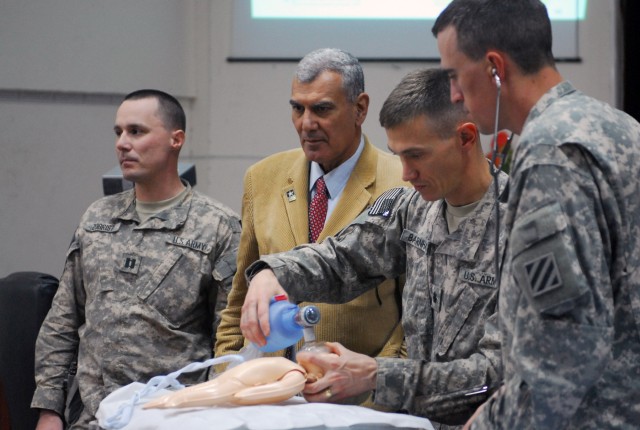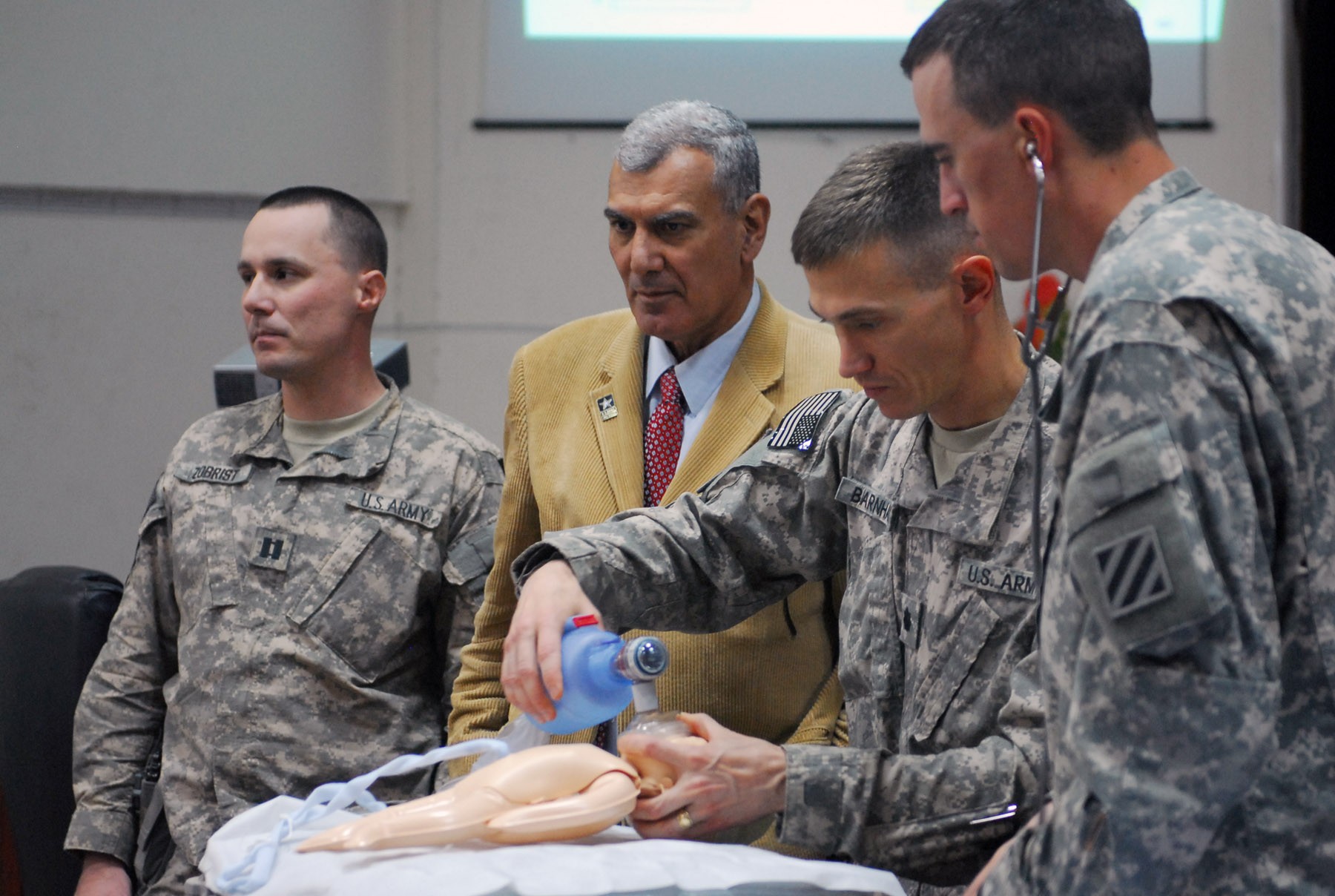
AL ANBAR, Iraq - U.S. Army medics have been teaching life-saving skills to their Iraqi Security Force counterparts, as part of their advise-and-assist mission under Operation New Dawn. Now these military doctors are extending their expertise into the delivery room.
During a two-day class, Soldiers with United States Division-Center, taught about 20 Iraqi nurses and midwives neonatal resuscitation techniques Nov. 28-29 at the Al Anbar Provincial Government Center, Iraq.
"Iraq has a high birth rate, but also a high infant mortality rate and this training will help," said the lead instructor for the class, Lt. Col. Vincent Barnhart, 1st Armored Division surgeon, and a Chambersburg, Pa., native.
The Army doctors taught the Iraqi nurses basic steps of handling an infant after birth and the appropriate interventions, through lectures and hands-on practical exercises.
"Initial medical care the first few minutes after a baby is born is crucial," said Capt. Baruch Zobrist, a physician assistant with Brigade Special Troops Battalion, 4th Advise and Assist Brigade, 3rd Infantry Division. "Statistically, nine out of every 10 babies are born healthy births, and the one percent of infants who experience problems can usually be cared for through proper ventilation."
The medics introduced positive pressure ventilation with a bag-valve mask to the nurses who said they typically use antibiotics to treat non-responsive infants.
"The bag-valve mask is a piece of equipment they don't normally use," said Capt. John Pillen, physician assistant with the 1st Battalion, 76th Field Artillery Regiment, 4th AAB. "That was something new to them-a new skill, a new idea. They were a little bit hesitant at first to accept it, because it was new, but I think they've come to embrace it and are excited to take it back home to their communities and use it to improve the lives of infants."
The attendees were provided a training kit and a delivery room kit, donated by a U.S. non-government organization. The training kits include a stethoscope, bulb suction device, bag-valve mask, towels and a baby mannequin.
"They now have all the tools they need," assured Lt. Col. Barnhart, who encouraged the nurses to teach others in their community and potentially increase the odds of saving lives.
Osama Abdulrahman, Al Anbar director of health, said the neonatal resuscitation training now serves as the nucleus for future medical training in the province.
"Depending on the outcome of this 'train-the-trainer,' we will establish a second workshop and invite more attendees to do this again," he said. "These students have made me proud and I hope this will continue."
One of the students, a nurse of 29 years, said the neonatal class was very beneficial.
"Before this class, I needed to see a doctor when a baby stopped breathing," she said, "but now I feel confident that I can handle any baby (experiencing birth complications) on my own."
The self confidence and the success of the students gave a greater sense of accomplishment to Capt. Pillen.
"I really appreciated working with them," Capt. Pillen said. "They surprised me at how much they embraced the training, how enthusiastic they were, how strong their participation was and how interested they were in the material. They were really involved and wanted to learn. I think this is one of the most significant things I've done here in Iraq, and I really appreciate the opportunity to take part in this training."

Social Sharing